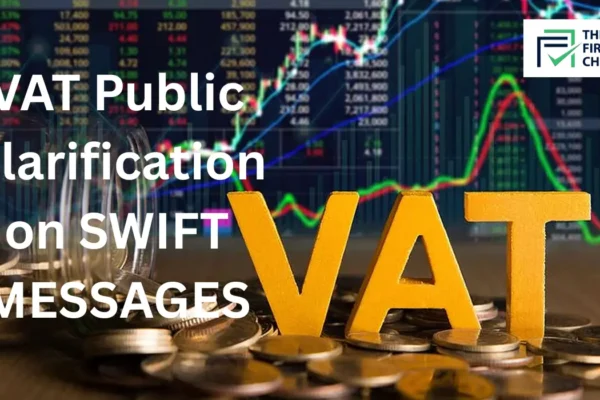Tax Newsletter
-
- VAT Treatment of Cryptocurrency Mining in the UAE: Key Insights from VATP039
As cryptocurrency gains traction, the UAE Federal Tax Authority (FTA) issued VAT Public Clarification VATP039 on January 15, 2025, addressing the VAT treatment of crypto mining via the proof-of-work mechanism.
What is Crypto Mining?
Crypto mining uses specialized equipment to validate blockchain transactions, earning rewards. The tax treatment depends on whether mining is for personal use or as a service.
Key VAT Guidelines for Crypto Mining
🔹 Mining for Personal Use
- No identifiable recipient, so not a taxable supply.
- No VAT applies to rewards.
🔹 Mining as a Service
- Providing mining services to others (e.g., for a business) is a taxable service.
- Subject to standard VAT rates unless zero-rating conditions (e.g., services to non-residents) apply.
🔹 Receiving Mining Services from Non-Residents
- UAE businesses receiving services from abroad:
- VAT applies via reverse charge if VAT-registered.
- If not VAT-registered, the foreign supplier must register and charge VAT.
🔹 Input Tax Recovery
- No VAT recovery on expenses (e.g., hardware, utilities) for personal mining.
- VAT recovery allowed for taxable mining services if:
- Miner is VAT-registered.
- Proper tax invoices and records are maintained.
Read the official announcement
- New VAT Rules: Reverse Charge Mechanism for Precious Metals and Stones
On December 16, 2024, UAE Cabinet Decision No. 127 of 2024 introduced updated Reverse Charge Mechanism (RCM) rules for goods, effective February 15, 2025. These shift VAT responsibilities to the recipient under specific conditions.
What’s Changing?
For goods supplied to a VAT-registered recipient for resale or manufacturing:
- Supplier does not charge or report VAT.
- Recipient accounts for and reports VAT due.
Conditions for RCM
Before supply, the recipient must provide:
- Written declaration of intent to resell or use goods in manufacturing.
- Proof of VAT registration.
The supplier must:
- Retain declarations.
- Verify recipient’s VAT registration via FTA methods.
When RCM Does Not Apply
- If supply is zero-rated under Article 45(1) of UAE VAT Law.
- If recipient fails to provide declarations.
- Supplier accounts for VAT; recipient cannot claim input VAT recovery under Article 54(1)(a) or (b).
Why This Matters
Critical for businesses in wholesale, manufacturing, or importing goods for resale. Proper documentation is essential for compliance.
Read the official announcement
Corporate Tax
- Interest Deduction Limitation Rules
On April 7, 2025, the FTA released CTGIDL1: Interest Deduction Limitation Rules, clarifying how interest expenses are treated under UAE Corporate Tax Law.
Key Highlights
- Definition of Interest: Clarifies what qualifies as interest.
- Deduction Rules: Covers General and Specific Interest Deduction Limitation Rules.
- Carry Forward: Disallowed net interest can be carried forward for future use.
- Interaction: Details how rules interact with other tax provisions.
Why This Matters
Essential for businesses to optimize tax positions and ensure compliance.
Read the official announcement
- Cabinet Decision No. 142 of 2024 on Top-up Tax for Multinational Enterprises
Effective January 1, 2025, Cabinet Decision No. 142 of 2024 introduces a Top-up Tax for Multinational Enterprise (MNE) Groups, aligning with OECD’s Pillar Two global minimum tax.
What Is the Top-up Tax?
Ensures MNE Groups pay a minimum tax level, per detailed conditions in the Decision’s annex.
Who Is Affected?
Applies to Constituent Entities of MNE Groups with:
- Annual revenues ≥ EUR 750 million in consolidated financial statements of the Ultimate Parent Entity in at least two of the four prior fiscal years.
- Entities or Permanent Establishments outside the Ultimate Parent Entity’s jurisdiction.
Key Terms
- MNE Group: Includes at least one entity or permanent establishment in a foreign jurisdiction.
- Constituent Entity: Any group entity or permanent establishment, except Excluded Entities.
- Ultimate Parent Entity: Controls the group and is not controlled by another.
Excluded Entities
- Governmental entities, international organizations, non-profits, pension funds, certain investment/real estate funds, and entities owned by these.
Why This Matters
Supports UAE’s commitment to global tax reforms and BEPS 2.0, ensuring fair taxation for large multinationals.
Read the official announcement
General News
- FTA Launches Application for Family Foundations via EmaraTax
The FTA introduced a feature on EmaraTax for Family Foundations to apply as Unincorporated Partnerships under UAE Corporate Tax Law.
What’s the Update?
Based on Federal Decree-Law No. 47 of 2022 and Ministerial Decision No. 261 of 2024, eligible Family Foundations can apply via EmaraTax.
Key Highlights
- Eligibility: Must be Corporate Tax-registered; applications by taxpayer, Tax Agent, or legal representative.
- Post-Approval: Exempt from Corporate Tax Returns; beneficiaries assess their own tax obligations.
Why This Matters
Streamlines compliance for private wealth structures, aligning with international best practices.
Read the official announcement
Kingdom of Saudi Arabia
- ZATCA Extends Tax Fine Waiver Until June 30, 2025
ZATCA extended its Cancellation of Fines and Exemption of Financial Penalties Initiative to June 30, 2025, offering relief under all Saudi tax laws.
What’s Covered?
Exemptions from penalties for:
- Late tax registration, payment, or filing.
- VAT return corrections.
- E-invoicing violations.
- General VAT penalties.
Eligibility
Taxpayers must:
- Be registered with ZATCA.
- Submit all outstanding returns.
- Pay principal tax amounts.
Installment plans are available if applied for within the period and paid on time.
Exclusions
- Tax evasion penalties.
- Fines paid before the initiative’s start.
- Penalties on returns due after December 31, 2024.
Read the official announcement
- ZATCA Allows VAT Refunds for Public Benefit Project Contributors
ZATCA introduced VAT refunds for contributors to public benefit projects in Saudi Arabia.
Who’s Eligible?
Individuals or entities financing projects like mosques, healthcare centers, or educational institutions.
Key Conditions
- Project must have government approval.
- Contract or agreement required (unless contributor is the implementer).
- VAT cannot be reclaimed via standard input tax recovery.
How to Apply
- Review eligibility on ZATCA’s website.
- Register as eligible for VAT refunds.
- Submit documentation, including approvals and contracts.
Read the official announcement
Oman
- Import Ban on Soft and Energy Drinks Without Digital Tax Stamp from June 2025
From June 1, 2025, Oman’s Tax Authority will ban imports of soft drinks, energy drinks, and other Excise goods without a Digital Tax Stamp (DTS), marking the third phase of DTS implementation.
Affected Products
- Soft drinks, energy drinks, and other Excise goods (excluding sweetened beverages).
DTS System
A traceability mechanism to monitor Excise goods, ensuring compliance and preventing untaxed or counterfeit products.
Statement
Mr. Said bin Ahmed Al Shanfari emphasized DTS’s role in tax compliance, evasion prevention, and public safety.
For Importers
Ensure compliance by June 2025 to avoid shipment rejections and penalties.
Read the official announcement
- Oman and India Strengthen Economic Ties Through Double Taxation Protocol
Oman and India signed an amending protocol to the Agreement on the Avoidance of Double Taxation and Prevention of Fiscal Evasion.
Key Highlights
- Signed in the presence of H.E. Nasser bin Khamis Al Jashmi and H.E. Amit Narang.
- Held at Oman’s Tax Authority headquarters.
Purpose
- Prevent double taxation for cross-border individuals and entities.
- Curb fiscal evasion.
- Enhance economic and investment cooperation.
Read the official announcement



